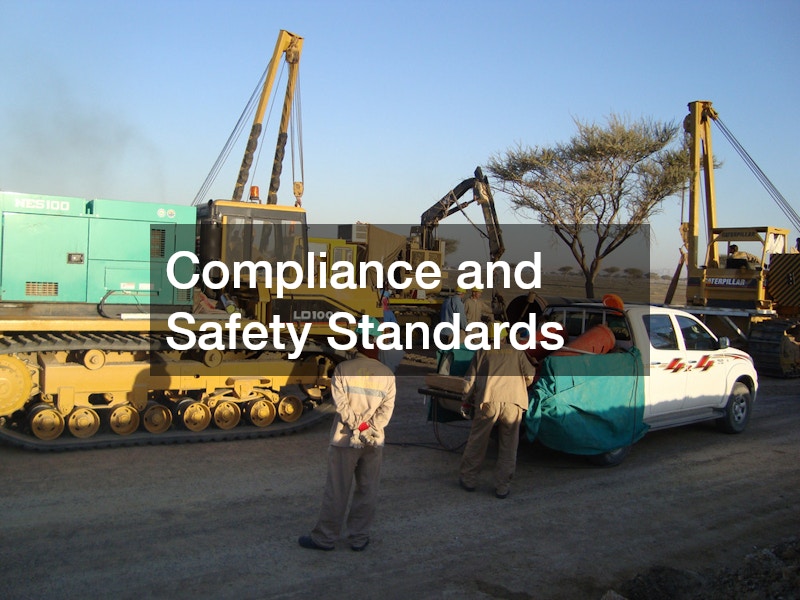The construction industry has seen significant transformations over recent years, with equipment rental emerging as a pivotal trend. This growing popularity can be attributed to the numerous benefits equipment rental offers over traditional equipment ownership. Construction companies of all sizes are increasingly embracing this model, leveraging it to optimize their operations, reduce costs, and enhance efficiency.
The Financial Benefits of Equipment Rental
Reduced Upfront Costs
One of the most significant financial advantages of renting construction equipment is the elimination of large capital expenditures. By opting for rental, companies can conserve their working capital, allowing them to allocate financial resources to other critical areas of their business. This financial flexibility can be particularly beneficial for small to medium-sized construction firms looking to grow and compete in larger markets.
Beyond preserving capital, equipment rental also facilitates better cash flow management. Companies can strategically plan their rental expenses to align with project timelines, improving financial predictability. This adaptability can lead to more strategic budget allocation, minimizing the financial risk associated with equipment depreciation and obsolescence.
The reduced upfront costs of equipment rental also make it easier for construction firms to undertake a wider variety of projects. With the financial burden of purchasing equipment lifted, companies can bid on projects of varying scales without the worry of machinery costs. This advantage translates into expanded business opportunities and the potential for increased revenue streams.
Maintenance and Repair Savings
Another compelling financial benefit is the included maintenance and repair services that typically come with rental agreements. This alleviates the need for construction companies to maintain their own repair facilities or staff, which can be both costly and labor-intensive. Rental companies ensure that their equipment is in optimal working condition, directly contributing to operational efficiency.
Furthermore, the assurance that repairs and maintenance will be taken care of enhances project timelines. Unscheduled downtimes due to malfunctioning equipment can lead to costly delays, but with rental agreements, these disruptions are minimized. Rental companies are quick to provide replacement equipment if necessary, ensuring that projects stay on track and on budget.
Ultimately, these savings in maintenance and repair work intricately boost a construction company’s bottom line. By outsourcing these aspects to the rental provider, construction firms can focus more on core activities like project planning and execution. This division of responsibilities not only promotes specialization but also leads to cost efficiencies across the board.
How Equipment Rental Improves Project Efficiency
Access to the Latest Technology
Equipment rental companies continually update their fleets with the latest technological advances. For construction companies, this means access to state-of-the-art machinery without the prohibitive cost of frequent upgrades. Advanced equipment often boosts productivity with enhanced features, improving the quality and speed of construction work.
Rental agreements allow construction companies to test new equipment and technology on a project basis. This experiential approach helps companies evaluate which machinery best suits their operational needs before making a purchasing commitment. Such flexibility eliminates the risk of investing in equipment that does not align with long-term company objectives.
Flexibility and Scalability
The ability to adapt quickly to changing project requirements is another major advantage of equipment rental. Construction projects often face dynamic conditions, necessitating varying types of equipment at different stages. Rental services offer unmatched flexibility, allowing for easy scaling up or down of equipment as project demands evolve.
This adaptability is crucial for meeting tight deadlines and handling multiple projects simultaneously. Equipment rental services provide construction firms with the ability to quickly acquire additional machinery during peak times and scale back during slower periods. Such agility ensures efficient use of resources and maximizes operational productivity.
The Environmental and Regulatory Advantages of Renting Equipment
Lower Environmental Impact
Renting construction equipment often results in a lower environmental footprint compared to ownership. Rental companies typically invest in the latest, most efficient models, which emit fewer pollutants and consume less fuel. By utilizing these newer machines, construction projects can operate more sustainably.
Additionally, shared usage of rental equipment reduces the overall demand for new machinery production. Fewer new machines mean reduced waste from manufacturing processes and less resource depletion. The consolidated environmental impact contributes positively to the industry’s sustainability goals.
Compliance and Safety Standards
Rental companies play a crucial role in ensuring that construction equipment complies with current safety and regulatory standards. This commitment not only safeguards the welfare of construction workers but also reduces the liability risk for construction companies. Being assured of compliance allows firms to focus on successful project completion without regulatory concerns.
Furthermore, rental companies often provide training and support to ensure safe and efficient equipment usage. These services empower workers to operate machinery confidently, enhancing workplace safety. The reduction in accidents and injuries associated with qualified equipment operation benefits both the employees and the employer.
Equipment rental presents a myriad of benefits, making it a strategic choice for modern construction projects. From financial savings to enhanced project efficiency and even environmental and regulatory advantages, the positive impacts of renting are substantial. As the construction industry continues to evolve, embracing equipment rental is not just a practical decision but a smart move towards sustainable and effective project execution.






